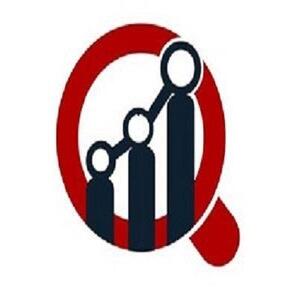
Residential Ducted Heat Pump Market Overview
Comprehensive Research Study by Market Research Future (MRFR), Residential Ducted Heat Pump Market Information by Heat Source, Capacity, Control Type, Efficiency, Distribution System, Regional – Forecast till 2032 The Residential Ducted Heat Pump industry size shall expand from USD 8.57 Billion in 2023 to USD 14.4 Billion by 2032, with a CAGR of 5.94% during the appraisal period (from 2023 to 2032).
The residential ducted heat pump market is witnessing significant growth globally due to increasing demand for energy-efficient and environmentally friendly heating and cooling solutions. Ducted heat pumps are integral in residential applications, offering efficient temperature regulation through a centralized duct system. Unlike traditional HVAC systems, these pumps operate on a heat exchange principle, transferring heat between the inside and outside of a home. As consumers become more environmentally conscious and as government regulations push for energy-efficient technologies, ducted heat pumps are emerging as a popular alternative to conventional heating and cooling systems.
Request Free Sample Report: https://www.marketresearchfuture.com/sample_request/30434
Residential Ducted Heat Pump Market Scope
The scope of the residential ducted heat pump market is broad and evolving, as it encompasses various types of ducted heat pumps, such as air-source, ground-source, and hybrid systems. The market covers new installations and replacement systems across single-family homes, multi-family units, and small apartments. Additionally, the market is driven by both the demand for new residential constructions and retrofitting of existing buildings.
The residential ducted heat pump market also covers a wide range of applications, including space heating, cooling, and water heating. As building codes and regulations tighten to ensure energy efficiency, the penetration of heat pumps in the residential sector is expected to rise further. The market includes manufacturers, distributors, and service providers that are actively engaged in providing installation, maintenance, and energy optimization services to homeowners.
Residential Ducted Heat Pump Market Dynamics
The residential ducted heat pump market is influenced by various dynamic factors that shape its growth trajectory. Technological innovations, regulatory changes, and shifts in consumer behavior are driving the evolution of this market. The growing awareness about environmental sustainability and the need to reduce greenhouse gas emissions are central to the dynamics of this market.
Government regulations and incentives aimed at promoting energy-efficient home heating solutions have significantly contributed to market expansion. Incentives such as tax rebates, subsidies, and grants for installing energy-efficient systems encourage homeowners to opt for heat pumps over traditional heating solutions. The rising cost of energy is another crucial factor that is motivating homeowners to adopt ducted heat pumps, which offer substantial savings on electricity bills over time.
Additionally, technological advancements such as smart home integration and energy management features have enhanced the attractiveness of residential ducted heat pumps. The ability to remotely control and monitor heating and cooling systems via smartphones and other devices is a growing trend that adds convenience and efficiency to heat pump systems.
Buy Now: https://www.marketresearchfuture.com/checkout?currency=one_user-USD&report_id=30434
Key Drivers
Several key drivers are contributing to the growth of the residential ducted heat pump market. One of the primary drivers is the increasing emphasis on energy efficiency and the growing demand for sustainable energy solutions. Ducted heat pumps are known for their ability to provide heating and cooling at a fraction of the energy required by traditional systems. As governments around the world implement stricter energy efficiency standards, heat pumps are emerging as a preferred choice among homeowners.
Another significant driver is the rising cost of energy. Homeowners are becoming more concerned about their utility bills, leading to a search for energy-saving alternatives. Ducted heat pumps, with their superior energy efficiency, help in reducing energy consumption, making them an economically attractive option.
Residential Ducted Heat Pump Market Segmentations
The residential ducted heat pump market can be segmented based on various factors, including product type, application, and distribution channel.
By Product Type:
Air-source Heat Pumps: These are the most common type and transfer heat between the air inside and outside a building.
Ground-source (Geothermal) Heat Pumps: These systems use the stable temperature of the ground to provide heating and cooling.
Hybrid Heat Pumps: These systems combine air-source and ground-source technology to provide higher efficiency in various climatic conditions.
By Application:
Heating: The primary application for heat pumps, especially in colder climates where energy-efficient heating is crucial.
Cooling: Heat pumps also offer efficient cooling solutions, competing with traditional air conditioning systems.
Water Heating: Many residential heat pumps now integrate water heating functions, providing a comprehensive solution for homeowners.
By Distribution Channel:
Direct Sales: Many heat pump manufacturers sell directly to contractors and consumers.
Retail Distribution: Home improvement stores and online retailers play a significant role in the distribution of ducted heat pumps.
Specialized Installers and Contractors: Installation and maintenance services are typically provided by specialized HVAC contractors.
Key Companies in the Residential Ducted Heat Pump Market Include:
Read More: https://www.marketresearchfuture.com/reports/residential-ducted-heat-pump-market-30434
Regional Analysis
The residential ducted heat pump market exhibits strong growth across several regions, with varying degrees of adoption based on climatic conditions, regulatory frameworks, and consumer awareness.
North America: The North American market is growing steadily, driven by increasing energy costs and a growing awareness of environmental issues. The United States and Canada have implemented various incentive programs to encourage the installation of energy-efficient heating and cooling systems.
Europe: Europe is one of the largest markets for residential ducted heat pumps, with countries like Germany, France, and the UK leading the adoption. The European Union’s stringent energy efficiency directives and climate action plans have significantly boosted the market.
Asia-Pacific: The Asia-Pacific region is experiencing rapid growth in the residential ducted heat pump market, primarily due to increasing urbanization and the rising need for energy-efficient solutions. China, Japan, and South Korea are leading the market in this region, with governments offering subsidies and incentives for homeowners to adopt heat pumps.
More Related Reports:
Hydronic Underfloor Heating Market Size
Individual Quick Freezing Equipment Market Share
Induction Heating System Market Growth
Mechanical Electrical & Plumbing Support System Market Trends
Motion Control Drive Market Size
Pet Preform Machine Market Share